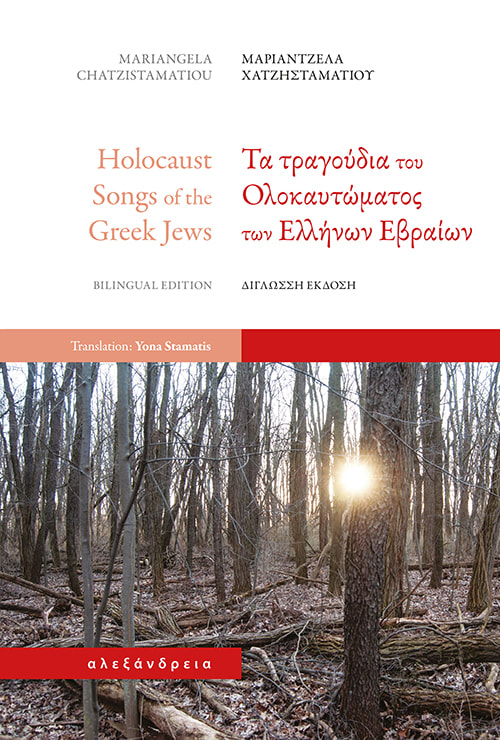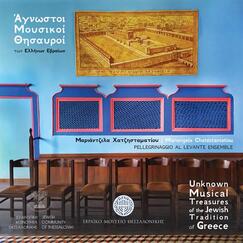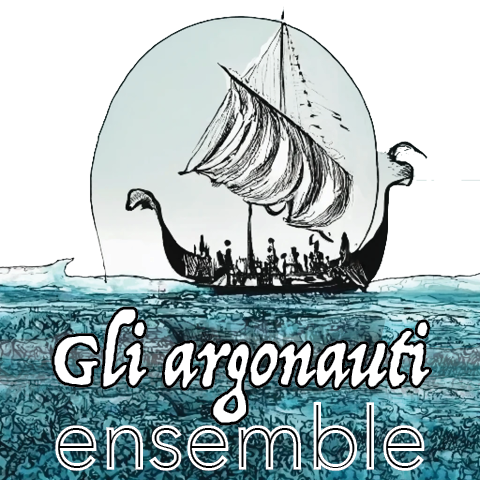|
The publication Holocaust Songs of the Greek Jews presents, for the first time in a consolidated volume accompanied by recordings, the poignant musical compositions penned by Greek Jews during the harrowing period of the Holocaust. Spearheaded as a research initiative by the Jewish Museum of Thessaloniki and conducted under the auspices of the Jewish Community of Thessaloniki, this project received co-financing from esteemed entities including the European Jewish Fund, the Claims Conference, and the Department of History and Archaeology of Aristotle University of Thessaloniki.
The songs of the Holocaust era predominantly comprise adaptations of popular melodies from the European repertoire or indigenous Greek compositions such as folk tunes and rebetika. These adaptations ingeniously weave new lyrical narratives, articulating the hopes, fears, and profound love for their homeland, Greece, and the cherished city of Thessaloniki. Notably, these songs serve not only as a cultural expression but also as invaluable historical artifacts, classified into three distinct categories: those composed within the confines of the Baron Hirsch ghetto of Thessaloniki, within the confines of the Auschwitz camps, and those borne from the pens of survivors in the aftermath of the Holocaust. This collection emerged following extensive research spearheaded by Mariangela Chatzistamatiou, drawing upon survivor testimonies, Holocaust literature, the archives of the Jewish Community of Thessaloniki, and the seminal work of survivor Moshe Ha-Elion. Each song, or rather its lyrical essence, encapsulates a unique narrative, providing a poignant window into the darkest moments of human history. The publication meticulously integrates historical context, documented evidence, song lyrics, and bibliographical references, complemented by a QR code for convenient digital access. Mariangela Chatistamatiou, alongside the music ensemble Pellegrinaggio al levante under the direction of Nikos Panagiotidis, collaborated closely with students and educators from the Volos Music School. Their collaborative endeavor aimed not only to accurately capture the essence of each song but also to honor its textual and historical significance. The volume is prefaced by esteemed figures such as Maria Farantouri, Leon Nar, Betty Magrizou, Professor Giorgos Antoniou, and David Saltiel, President of the Central Board of Jewish Communities in Greece. The book is available through Alexandria Publications and can be acquired at the Jewish Museum of Thessaloniki and select bookstores. Research and Production Team:
YouTube Spotify To buy, here |
|
Unknown musical treasures of the Jewish Tradition of Greece is much more than a new collection of Jewish music. Years of research by Mariangela Chatzistamatiou with the help of Chryssie Scarlatos accumulated a treasure of forgotten songs, which were collected one by one from differentiated sources all over Greece. The main characteristic of the collected songs is that they are parts of different Jewish linguistic and cultural traditions. No matter how old they were and where they came from, these traditions took their final shape in the context of the Modern Greek linguistic and musical influences. Thus, Unknown musical treasures of the Jewish Tradition of Greece reveal a cultural image close to the historical reality, rather than a fabricated illustration of the past. This is how a Jewish Museum can contribute to the historical knowledge of music.
YouTube https://www.youtube.com/watch?v=cKhoxLE_s7w&list=PLa-jfKKSuwPKslrA-uFBCbsBei4YcO1p3 Amazon Music https://music.amazon.com/albums/B09Y13X9LB Spotify https://open.spotify.com/album/6ljJ78Gqyb7da2LxxNL3q0?si=kUFD4Hx7Tk2Vm2n4ZXwksA i-tunes https://music.apple.com/gr/album/unknown-musical-treasures-of-the-jewish/1619463817 |
|
Pellegrinaggio al levante
A Musical Pilgrimage from Sicily to Istanbul through the centuries with the company of music and the stories of people. This projects features music from the length of the trip from Sicily to Venice and from Igoumenitsa to Istanbul, from the Renaissance to the early 18th century. The core of the repertoire consists of songs and tunes from the music traditions of Italy, Greece and Istanbul and of compositions by important composers of the above time period. During this music trip the audience gets a chance to listen to traditional tarantelle from Apulia, songs by Stafano Landi, elaborate vocal masterpieces by Barbara Strozzi and Benedetto Ferrari as well as Sephardic songs, traditional Greek songs and more. The project was initially funded by Piraeus Bank Group Cultural Foundation and was presented at the Rooftile and Brickworks Museum N. &. Tsalapatas in Volos, Greece. Mariangela Chatzistamatiou, soprano, research Vassilis Agrokostas, voice, Constantinople lyre, violin Nikos Panagiotides, theorbo, lafta, baroque guitar, research, instrumentation. Dimitris Demelis, violin Nikolas Milonas, percussion |
|
Gli Argonauti Ensemble
This project started when I first returned to Europe from Thailand. I was lucky enough to meet Nikos Panagiotides- a baroque expert, amazing musician and fearless lutenist- in my home town, and collaborate with him. The project focuses on vocal music by 17th century Italian composers such as Monteverdi, Cavalli, Strozzi, Frescobaldi, Albinoni, Castaldi to name just a few. We have performed the program in festivals and other occasions, but it is still a work-in-progress for us since the beauty of the endless repertoire demands our constant attention. The Italian repertoire of the 17th century holds a distinct allure: brimming with Greek and Roman mythological and historical figures, teeming with romantic passions and emotional complexities, melding melody and narrative seamlessly. It represents a fusion of the Italian musical tradition and Ancient Greek drama, offering a captivating voyage into eras that may seem distant, yet remain profoundly relevant. Prior to the emergence of expansive orchestras and grandiose musical forms, refined music and songs tailored for the educated elite did not fall under the category of "classical music" but were simply emblematic of their era. Renowned composers (although many remain unfamiliar to contemporary audiences), virtuoso singers, and skilled instrumentalists have left behind a rich legacy. Soprano Mariangela Chatzistamatiou and lutenist Nikos Panagiotidis along with and ensemble of remarkable musicians, the Argonauts, embark on a journey that traverses from Florence and the early operas of Caccini and Monteverdi to the fervor of Naples. |











